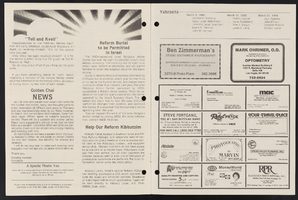Search the Special Collections and Archives Portal
Search Results
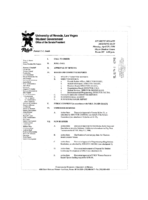
Meeting minutes for Consolidated Student Senate University of Nevada, Las Vegas, April 29, 1996
Date
1996-04-29
Archival Collection
Description
Includes meeting agenda and minutes, along with additional information about requests, proposals, credit fee wavers, and resolutions.
Text

Meeting minutes for Consolidated Student Senate University of Nevada, Las Vegas, May 9, 1985
Date
1985-05-09
Archival Collection
Description
Includes meeting agenda and minutes.
Text
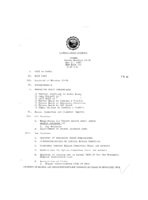
Meeting minutes for Consolidated Student Senate University of Nevada, Las Vegas, May 16, 1985
Date
1985-05-16
Archival Collection
Description
Includes meeting agenda and minutes with additional information about bylaws and memorandums.
Text
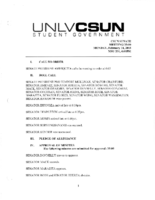
Meeting minutes for Consolidated Student Senate, University of Nevada, Las Vegas, February 14, 2005
Date
2005-02-14
Archival Collection
Description
Includes meeting minutes and agenda, along with additional information about proposals and the Rebel Yell operating policy and articles of incorporation.
Text
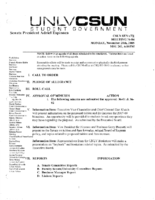
Meeting minutes for Consolidated Student Senate, University of Nevada, Las Vegas, November 28, 2005
Date
2005-11-28
Archival Collection
Description
Includes meeting agenda and meeting minutes, along with additional information about senate bills and Rebel Yell bylaws.
Text
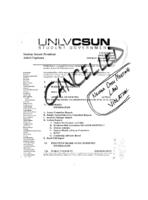
Meeting minutes for Consolidated Student Senate, University of Nevada, Las Vegas, December 05, 2005
Date
2005-12-05
Archival Collection
Description
Includes meeting agenda, along with additional information about senate bills and bylaws.
Text
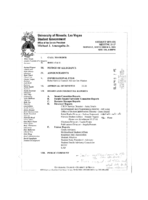
Meeting minutes for Consolidated Student Senate, University of Nevada, Las Vegas, September 08, 2003
Date
2003-09-08
Archival Collection
Description
Includes meeting agenda, along with additional information about letters and Regents Meetings.
Text
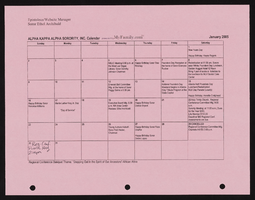
Alpha Kappa Alpha Sorority, Theta Theta Omega Chapter calendar
Date
2005-01 to 2006-01
Archival Collection
Description
From the Alpha Kappa Alpha Sorority, Incorporated, Theta Theta Omega Chapter Records (MS-01014) -- Chapter records file.
Text
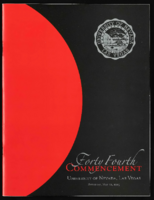
University of Nevada, Las Vegas (UNLV) 44th commencement program
Date
2007-05-12
Archival Collection
Description
Commencement program from University of Nevada, Las Vegas Commencement Programs and Graduation Lists (UA-00115).
Text
Pagination
Refine my results
Content Type
Creator or Contributor
Subject
Archival Collection
Digital Project
Resource Type
Year
Material Type
Place
Language
Records Classification

